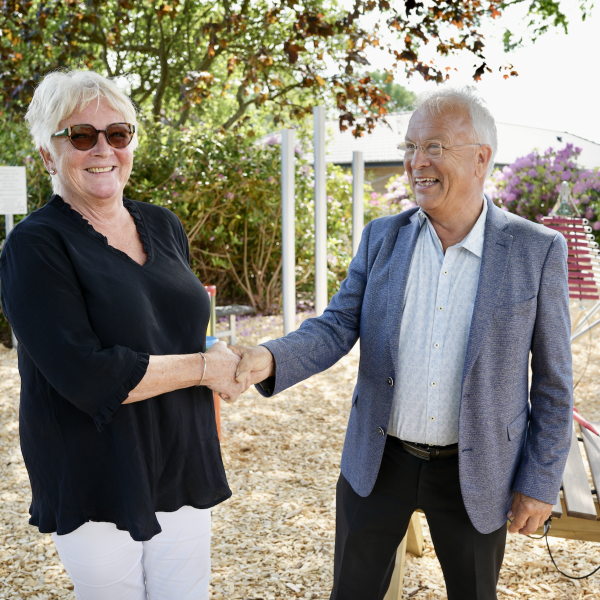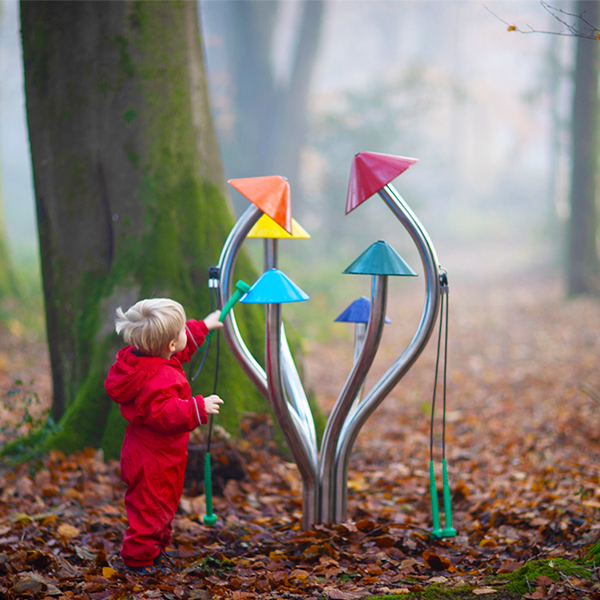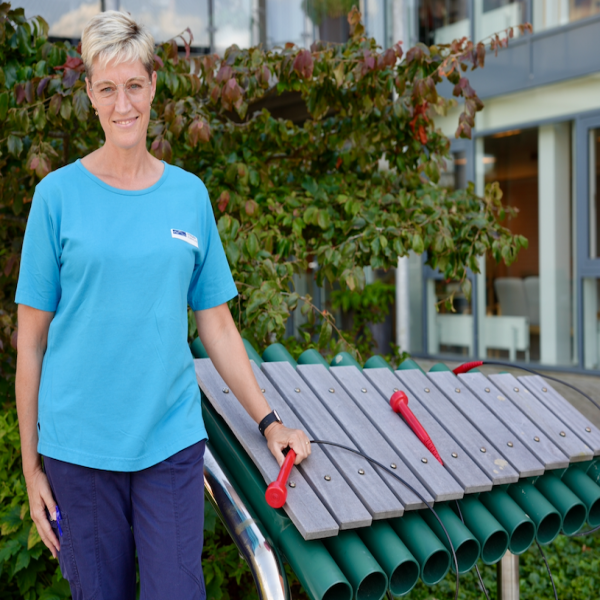Report finds disabled children ‘being excluded from play’
Yesterday, the former Labour Home Secretary Lord Blunkett and the national deafblind charity, Sense, launched a national report, ‘The Case for Play’. The report revealed that play opportunities for the 570,000 disabled children in England and Wales and specifically the 100,000 with complex care needs, are failing at every level, resulting in these children missing out on play vital to their development.
Lord Blunkett found the report “both illuminating and thought-provoking” as it identifies a lack of attention by government, insufficient funding at a local level and negative attitudes towards disabled children and their families. It follows a three month public inquiry into the provision of play opportunities for disabled children aged 0-5 with multiple needs.
Sense, a national charity that supports and campaigns for children and adults who have sensory impairments and complex needs, are campaigning for changes to the way play services are designed and delivered and plans to produce a series of toolkits for parents, providers and commissioners of play. Lesley Rogers, Chair of Sense said “Play is important for every child – it makes them happy, helps them learn about the world and make friends. Play, however, is invaluable for children with multiple needs and their families. It enables us to experience those priceless moments of happiness and brings a sense of normality. Sadly, most toys, equipment, play groups and playgrounds are not accessible to our children”.
The Play Inquiry was designed to provide an evidence base and thorough understanding of the following:
-
What are the benefits of play for children with multiple needs?
-
Do barriers exist to young children with multiple needs accessing play settings and activities? If so, what are these?
- What can be done to increase access to play opportunities for young children with multiple needs?
When referring to ‘play settings and activities’ the report refers to any play setting or activity that is aimed at providing children with opportunities to play and interact with each other such as children’s centres, short break providers, childcare settings, health settings and playgrounds.
Key findings in the report make it clear that where a child has multiple needs, the barriers they and their families face to access play areas and activities are also multiplied, with very few play settings geared up to welcome and support them.
- Families would like to be able to access mainstream play settings in the community
- 92% of parents surveyed felt that their child did not have the same opportunities to play as their non-disabled peers
- 51% of children had been intentionally excluded from play opportunities by providers of play
- 95% of parents said that parents of children with multiple needs require support to find ways to play with their children
For children with multiple needs and their families, play contributes to a sense of well being and normality. Life can sometimes be stressful for children who receive a large number of medical interventions and therapies; play enables them to relax and enjoy the moment. Play allows disabled children to be happy, thrive, and live in the here and now. It is simply about having fun. It is a way for parents to undertake parent-child interaction therapy to build relationships, improve communication and raise aspirations for their child. Play can also be instrumental in building close relationships with siblings, as it offers an opportunity to spend quality time together as a family.
For children with multiple needs, access to play is arguably even more important to enable their physical, cognitive and emotional development. Investment in delivering early intervention through play is therefore an effective way to improve the life chances of children with multiple needs. A lack of play will mean they are less able to achieve their full potential.
This was a strong theme in the submissions that play is not simply about having fun, it’s a crucial development tool that teaches children how to engage with the world around them. At Percussion Play we strongly believe that musical play offers a full, sensory play experience. While engaging the senses, playing outdoor musical instruments provide a chance for children with disabilities to play right alongside their able-bodied friends and siblings.
“Inclusive play for all children fosters an environment where diversity is respected and valued; it enables all children of all abilities to play together and develop relationships on an equal footing in a child-centred environment”
Outdoor musical instruments in a play setting provide children with opportunities to play and interact with each other. Playing music in a group is useful for working on concepts such as cooperation with others, coordination, and a sense of accomplishment. Making music and singing songs together in a group can build a harmonious cooperative spirit of support and encouragement for everyone. Children who experience severe obstacles in forming relationships with other children, adults and their environment can achieve security and joy in making music. Music making involves many of the fundamental elements of social interaction; turn taking, listening and responding to another person can all be augmented in play through music.
Playing music may be an effective way to stimulate speech development and communication skills, express emotions, develop a sense of rhythm and provide opportunity for physical, cognitive and motor development whilst creating an environment for socialisation and fun.
Easy access to musical instruments may provide an outlet that encourages children to use music to deal with emotional issues, especially when they are unable to express them through speech. Instruments, which are simple to play and enable creative experimentation and tactile exploration, encourage the use of motor skills, thus developing coordination whilst stimulating the imagination.
Sharing outdoor musical instruments with family, friends or play staff is a multi-generational and fun experience, creating social interactions that will have a positive impact on mental function, mood and overall well-being.
“Laughing and having fun together is the most important thing”

Med støtte fra generøse donorer, herunder Nordea-fonden, har "Musik i haven" skabt et meningsfyldt samlingssted for alle. Instrumenterne fremmer fællesskab,...

Vi er utroligt glade og stolte over at kunne introducere vores helt nye Liberty...
